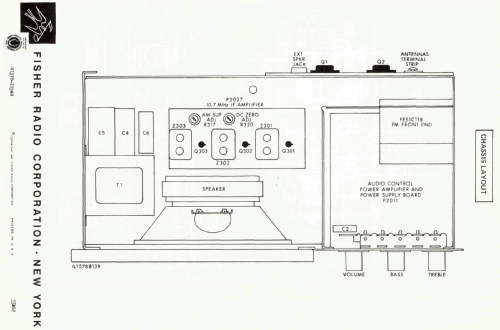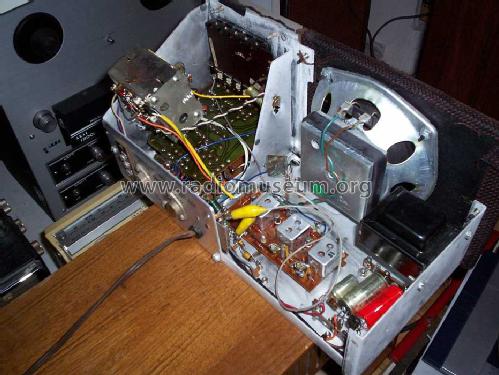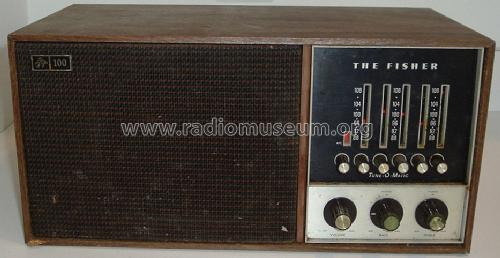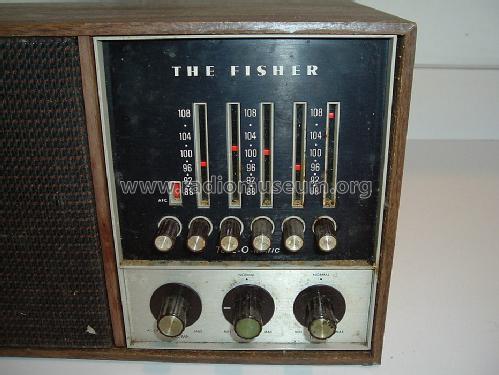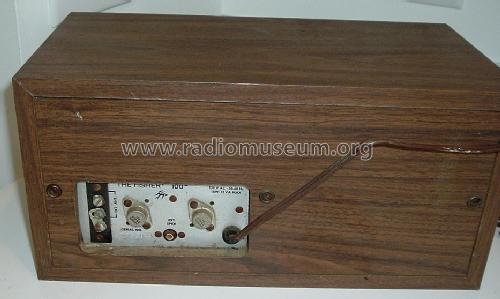- Produttore / Marca
- Fisher Radio; New York (NY)
- Anno
- 1970 ??
- Categoria
- Radio (o sintonizzatore del dopoguerra WW2)
- Radiomuseum.org ID
- 128097
Clicca sulla miniatura dello schema per richiederlo come documento gratuito.
- Numero di transistor
- A semiconduttori.
- Semiconduttori
- Principio generale
- Supereterodina (in generale)
- Gamme d'onda
- Solo modulazione di frequenza (FM)
- Tensioni di funzionamento
- Alimentazione a corrente alternata (CA) / 120 Volt
- Altoparlante
- AP magnetodinamico (magnete permanente e bobina mobile)
- Materiali
- Mobile in legno
- Radiomuseum.org
- Modello: 100 - Fisher Radio; New York NY
- Forma
- Soprammobile compatto/con bordi arrotondati/midget senza pulsantiera/tastiera.<= 35 cm (Sometimes with handle but for mains only).
- Annotazioni
- 5 tunable push-buttons, AFC, ext. speaker RCA jack.
- Fonte dei dati
- -- Collector info (Sammler)
- Autore
- Modello inviato da un iscritto da A. Utilizzare "Proponi modifica" per inviare ulteriori dati.
- Altri modelli
-
In questo link sono elencati 594 modelli, di cui 506 con immagini e 205 con schemi.
Elenco delle radio e altri apparecchi della Fisher Radio; New York (NY)
Discussioni nel forum su questo modello: Fisher Radio; New: 100
Argomenti: 2 | Articoli: 11
good morning all.
i just received a fisher 100 microreceiver (small tabletop radio) with two exposed transistors mounted in the back, where they're accessible without removing the case -- an amperex 2N4077 and a 2N4078 "Germanium" transistors. they have twin prongs that plug into the back of the unit). i've lost my bass and treble controls. i don't have a schematic. i'm hoping that replacing these transistors might solve my tone-control problem. i'm getting plenty of good sound out of the speakers, even with these transistors unplugged. i'm getting no continuity between the prongs of both transistors. i just got this very impressive radio and am trying to determine what has happened to the tone controls. i thought they worked when i received the radio, and i'm troubled that they've gone out so fast. can anyone please help?
thanks very much.
--charles jones
Charles Jones, 16.Oct.08
Also known as the Fisher Microreceiver 100.
Charles Jones, 15.Oct.08
